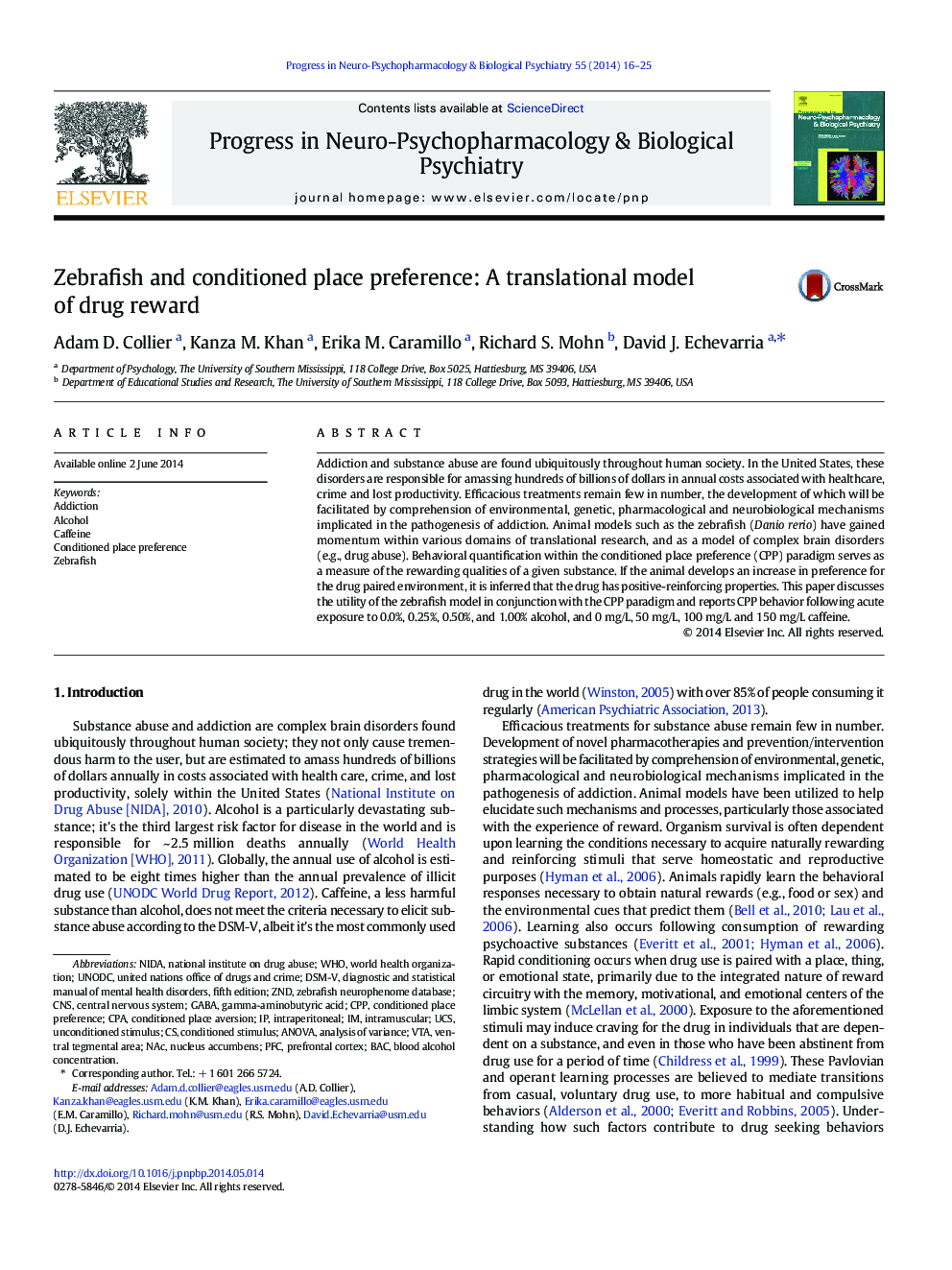| کد مقاله | کد نشریه | سال انتشار | مقاله انگلیسی | نسخه تمام متن |
|---|---|---|---|---|
| 5844403 | 1561039 | 2014 | 10 صفحه PDF | دانلود رایگان |
- Zebrafish were acutely exposed to ethanol and caffeine in the conditioned place preference assay.
- Ethanol induced CPP behavior at 0.25%, 0.50%, and 1.00% v/v.
- Caffeine did not have a significant effect on place preference at 50Â mg/L, 100Â mg/L or 150Â mg/L.
Addiction and substance abuse are found ubiquitously throughout human society. In the United States, these disorders are responsible for amassing hundreds of billions of dollars in annual costs associated with healthcare, crime and lost productivity. Efficacious treatments remain few in number, the development of which will be facilitated by comprehension of environmental, genetic, pharmacological and neurobiological mechanisms implicated in the pathogenesis of addiction. Animal models such as the zebrafish (Danio rerio) have gained momentum within various domains of translational research, and as a model of complex brain disorders (e.g., drug abuse). Behavioral quantification within the conditioned place preference (CPP) paradigm serves as a measure of the rewarding qualities of a given substance. If the animal develops an increase in preference for the drug paired environment, it is inferred that the drug has positive-reinforcing properties. This paper discusses the utility of the zebrafish model in conjunction with the CPP paradigm and reports CPP behavior following acute exposure to 0.0%, 0.25%, 0.50%, and 1.00% alcohol, and 0Â mg/L, 50Â mg/L, 100Â mg/L and 150Â mg/L caffeine.
Journal: Progress in Neuro-Psychopharmacology and Biological Psychiatry - Volume 55, 3 December 2014, Pages 16-25
